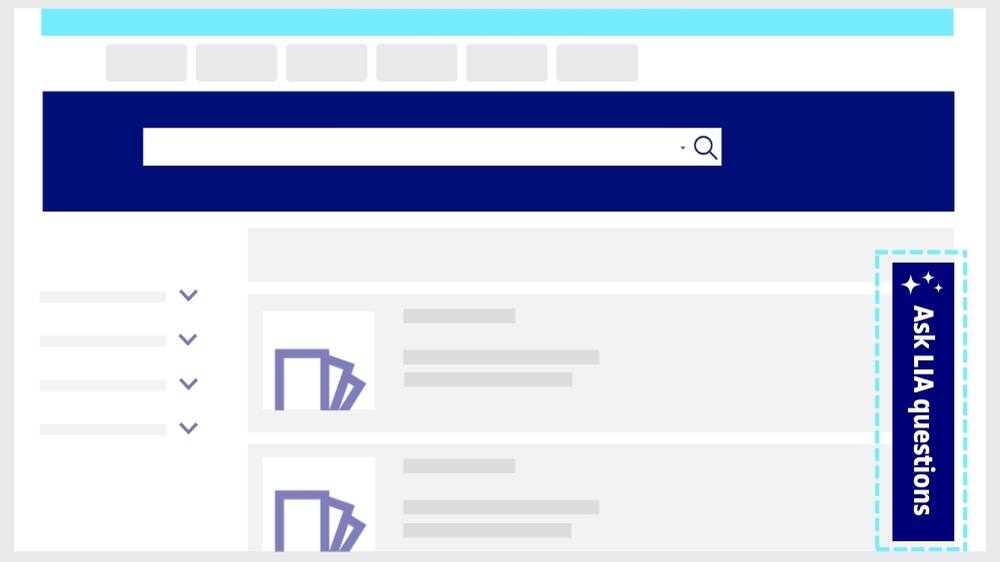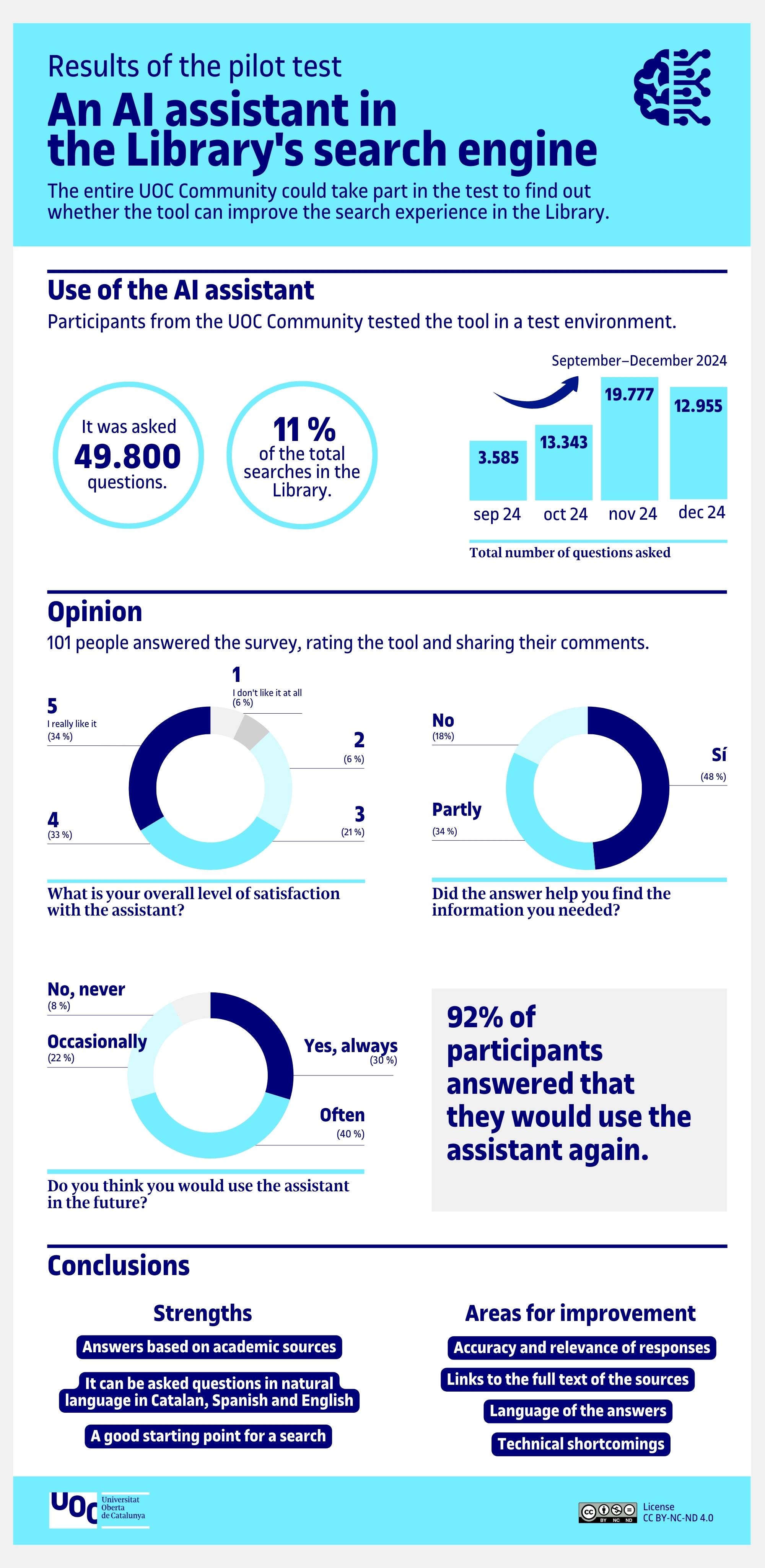LIA: the UOC Library search engine's AI assistant
Need help finding information? Try the UOC Library's generative artificial intelligence (AI) search assistant.
Try the tool and rate it!

Make sure you always go over the answers to check for any errors or bias.
Development of the project
Ball State University,
Cardiff University,
Free University of Bozen-Bolzano,
Keio University,
Sorbonne University,
Swansea University,
Swiss Library Service Platform (SLSP),
The New School
Tulane University,
University at Buffalo (SUNY),
University College London (UCL),
University of Liège,
University of New South Wales (UNSW),
Waseda University,
Yale University,
Beijing Normal University
Universitat Oberta de Catalunya (UOC)
Our aims
We're looking for innovative solutions to offer the best possible service. Integrating AI in the search engine is a starting point to improve the user's search experience, guiding them and making it easier and more intuitive.
Operative group:Rosa Llussà, member of the Research Assistant working group
Our priority is to make it easier and easier to find what you need, and this pilot test is a step in that direction. We'll evaluate the tool to find out if it meets the needs of the UOC community.
Operative group:Sara Zerini, member of the Research Assistant working group
Generative AIs using natural language questions aid the information retrieval processes and help explore the literature from any domain of knowledge.
Operative group:Joaquim Espín, member of the Research Assistant working group
The pilot test will be carried out in three stages:
Stage 1 (17 June-15 July)
Internal testing by a Library and Learning Resources department working group.
Configuration and initial customization of the tool.
First joint assessments by the eighteen participating institutions, based on 500 tests:
- General structure and length of results: Changes proposed to make the answers more complete and improve their structure.
- Sources of information: DataCite records are temporarily excluded. The sources the tool uses need to be accurately identified.
- Limitations: The instructions that it does not currently recognize need to be made clear.
Stage 2 (23 July-15 September)
The pilot test is extended to the entire Library and Learning Resources department and to UOC teaching staff, research staff and administrative staff.
Stage 3 (September)
The pilot test is opened up to the entire UOC community.
The AI assistant was asked nearly 50,000 questions, and 101 users shared their comments and ratings. Some 92% said that they would use the tool again for their searches.
Some areas for improvement were also identified:
- Increased accuracy and relevance of the answers, and fewer context errors.
- Inclusion of advanced features, such as filters by document type, voice assistants and machine translation.
- Consistent use of language, and an intuitive and customizable interface.
The Library team is in contact with the developers of the AI assistant to propose possible improvements to the tool.
Click the image to open the infographic.
Integration into the search engine (April)
With the AI search assistant integrated into the Library's search engine, some of the limitations identified during the pilot test can be overcome, including the ability to filter by document type or time period.






